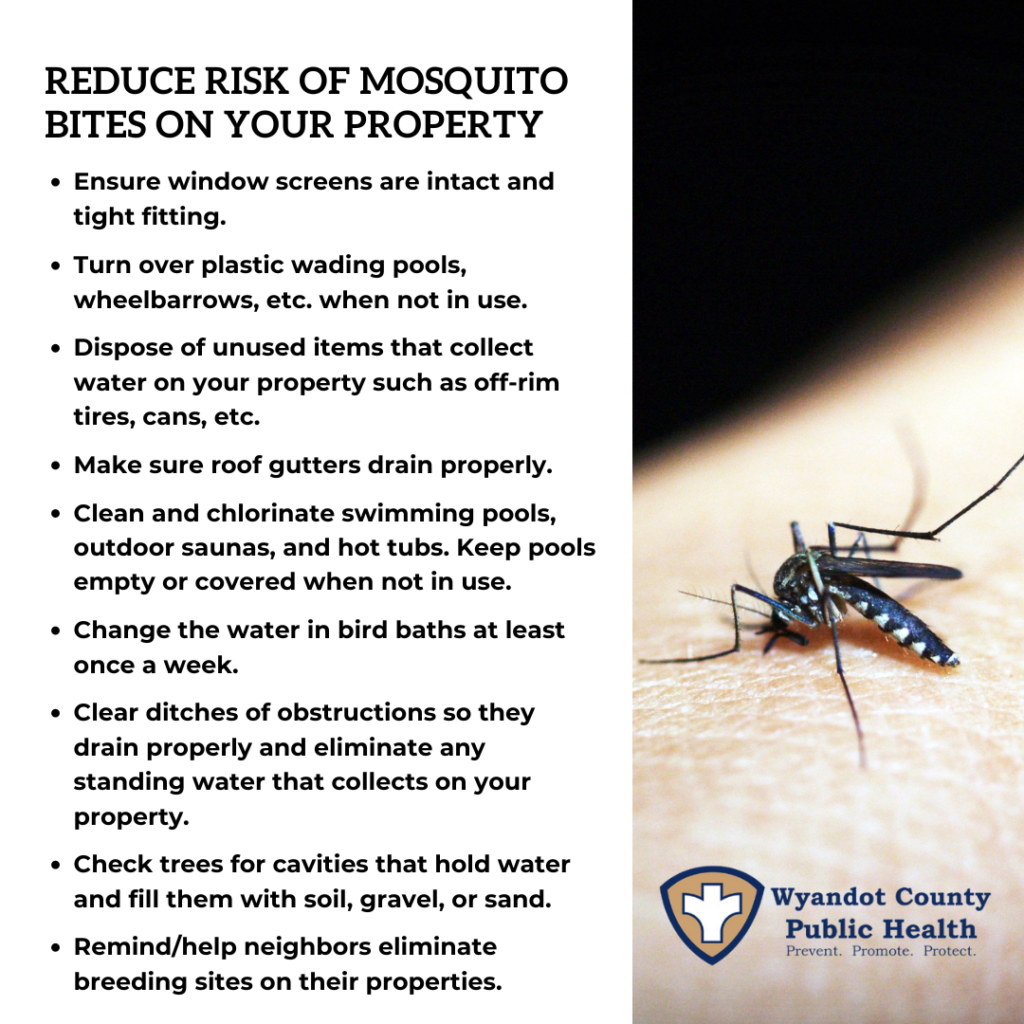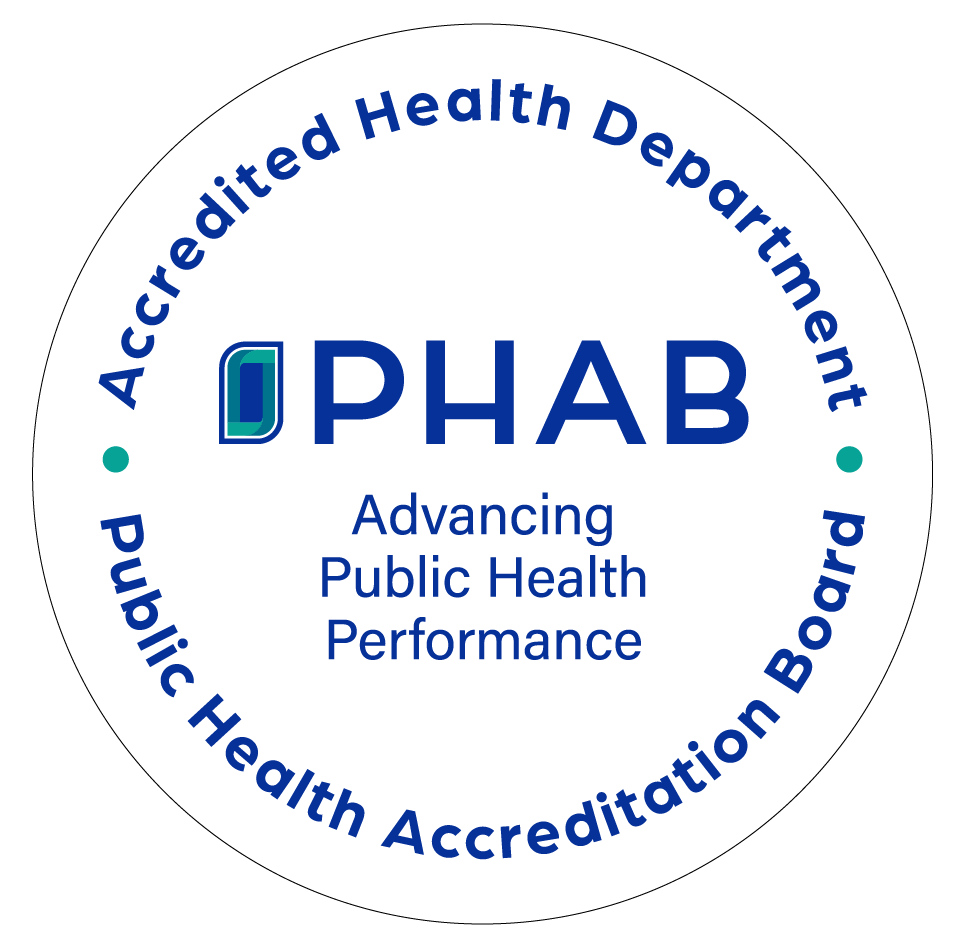First positive mosquito sample collected in 2024 trapping season
UPPER SANDUSKY, Ohio - Wyandot County Public Health (WCPH), in cooperation with the Ohio Department of Health, has identified one positive West Nile virus (WNV) sample during the mosquito trapping season as of Aug. 20, 2024. The WNV positive sample was collected on July 30, 2024, at Harrison Smith Park in Upper Sandusky, Ohio. This is the first positive sample identified in Wyandot County during the 2024 mosquito collection season.
WNV can cause potentially serious illness and is present in many counties in Ohio, including Wyandot County. WCPH remains proactive in trapping mosquitoes and having them tested by the Ohio Department of Health for the presence of WNV.
“While we generally assume that mosquitos carrying West Nile Virus are in the county every season, this positive sample serves as a reminder of the importance of taking steps to reduce exposure to mosquito bites,” said Wyandot County Director of Environmental Health Molly Owens.

As fall youth sporting events, and other outdoor activities continue, it is important that participants and spectators alike take proper precautions to avoid being bitten by mosquitoes. These precautions include wearing long sleeves and applying an Environmental Protection Agency–registered mosquito repellent containing DEET at a concentration of at least 30% to reduce the likelihood of a bite. Spaces with the potential for large crowds such as parks, sports stadiums, and other large gathering places may require extra measures to reduce the likelihood of mosquitoes by routinely emptying out trash containers and removing or fixing areas that collect water that could serve as sites for mosquitos to populate.
Approximately 80% of people who are infected with West Nile virus will not show any symptoms at all. Those who develop symptoms usually do so between two to 14 days after they are bitten by the infected mosquito. Up to 20% of people who become infected will have symptoms that can last for a few days to as long as several weeks and include fever, headache, body aches, nausea, vomiting, swollen lymph glands, and a rash on the chest, stomach or back. The last reported human case of West Nile Virus in Wyandot County occurred in 2018, according to Ohio Disease Reporting System. Wyandot County Public Health continues to monitor human cases.
The public can minimize the number of mosquitoes and reduce their risk of being bitten by following these tips:
- Make sure that doors and windows have tight-fitting screens. Repair or replace all torn screens.
- Turn over plastic wading pools, and wheelbarrows, etc. when not in use.
- Dispose of any items that collect water on a property including off-rim tires and unused tin cans, plastic containers, ceramic pots, or similar water-holding containers.
- Make sure roof gutters drain properly. Clean clogged gutters in the spring and fall.
- Clean and chlorinate swimming pools, outdoor saunas, and hot tubs. Keep pools empty or covered when not in use. Always drain water from pool covers.
- Change the water in bird baths at least once a week.
- Clear ditches of obstructions so they drain properly and eliminate any standing water that collects on your property.
- Check trees for cavities that hold water and fill them with soil, gravel, or sand.
- Remind or help neighbors to eliminate breeding sites on their properties.
For more information, visit ODH's West Nile Virus page or follow Wyandot County Public Health on social media @WyandotHealth.

